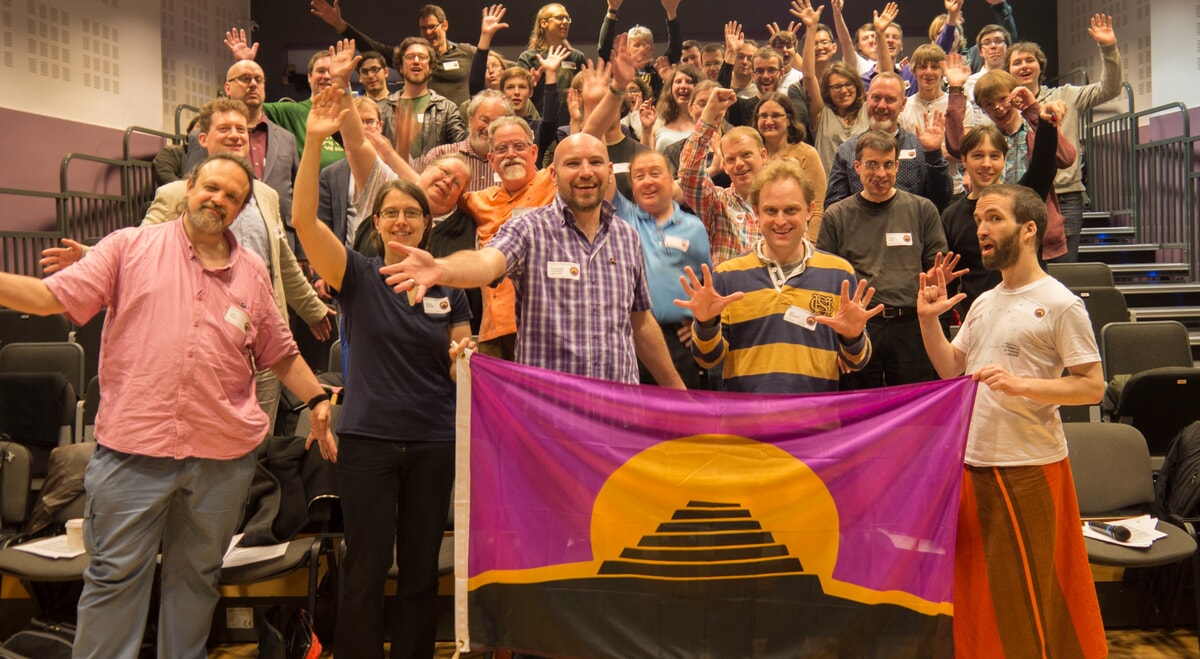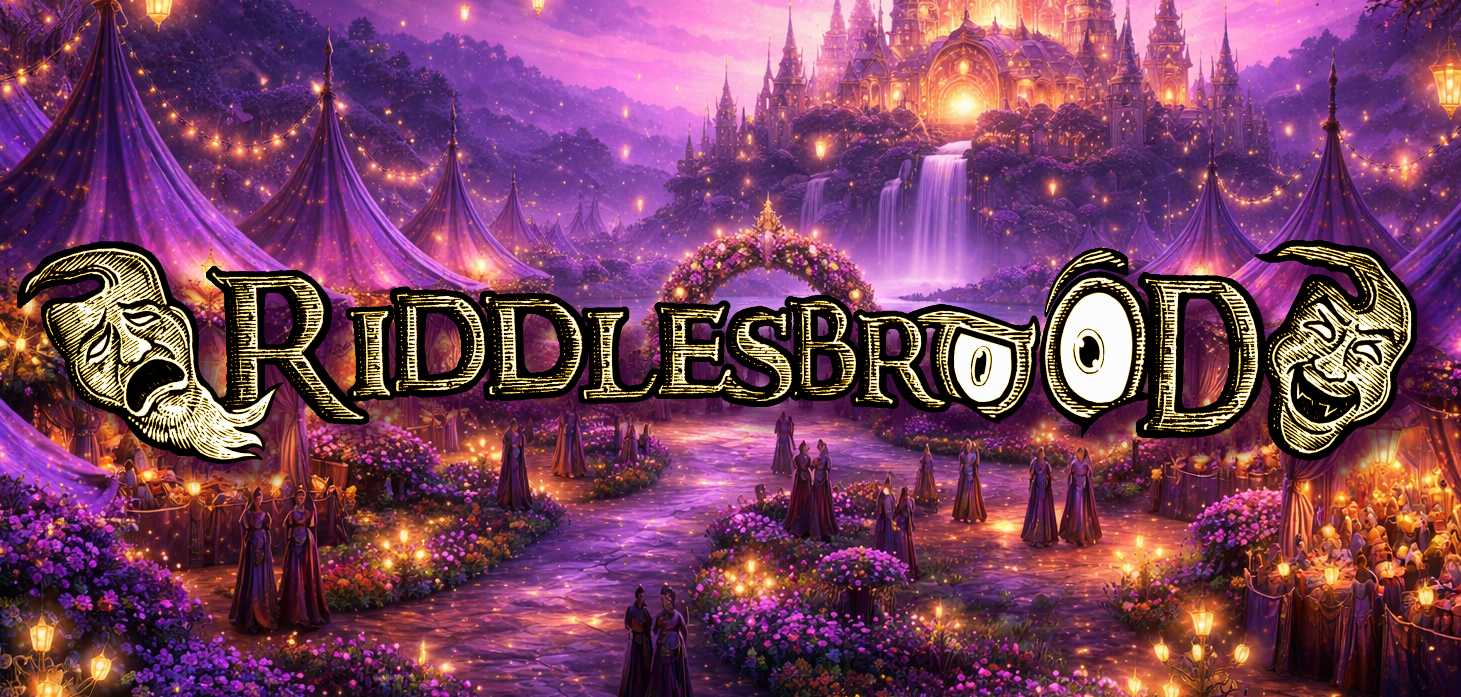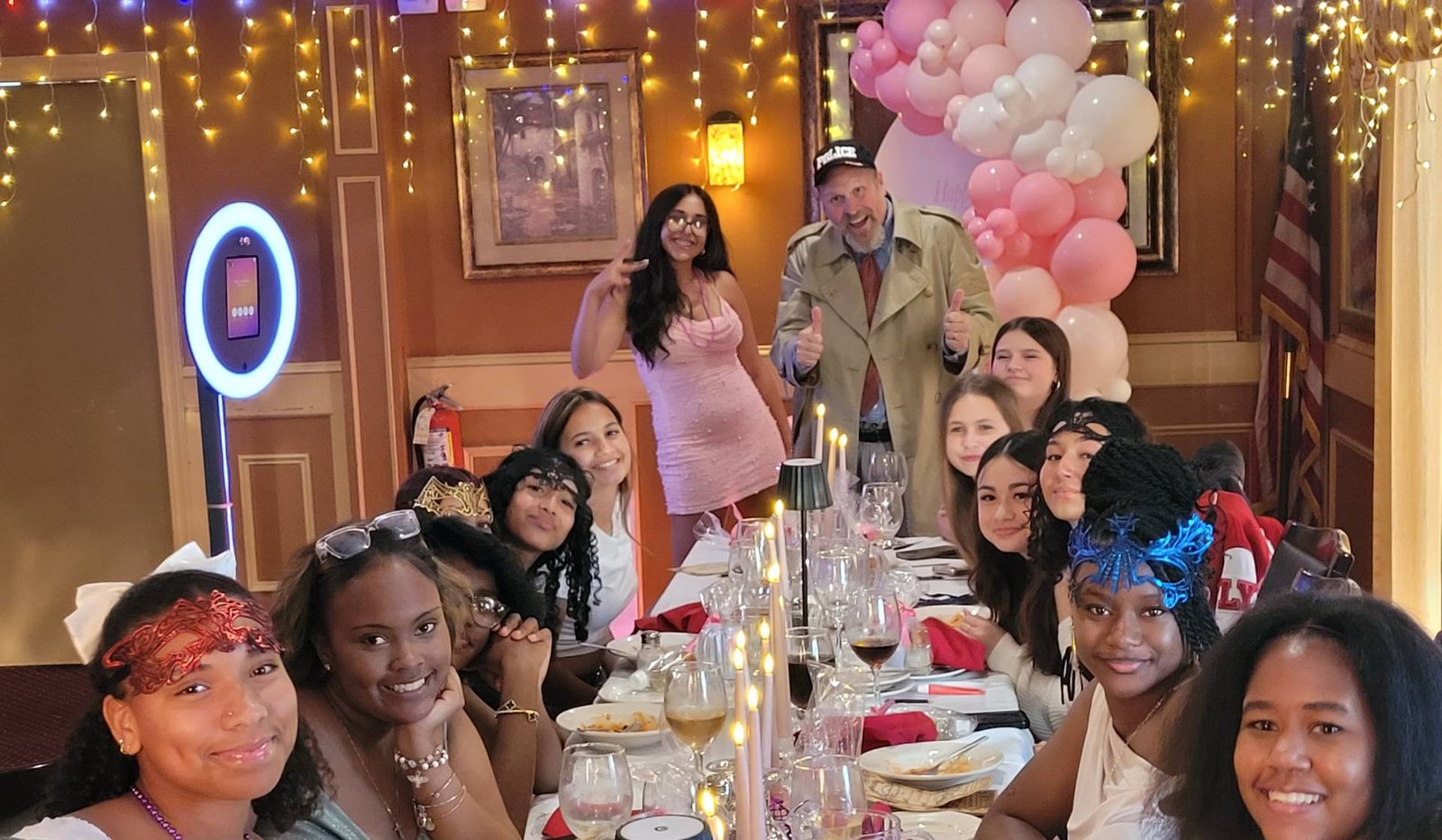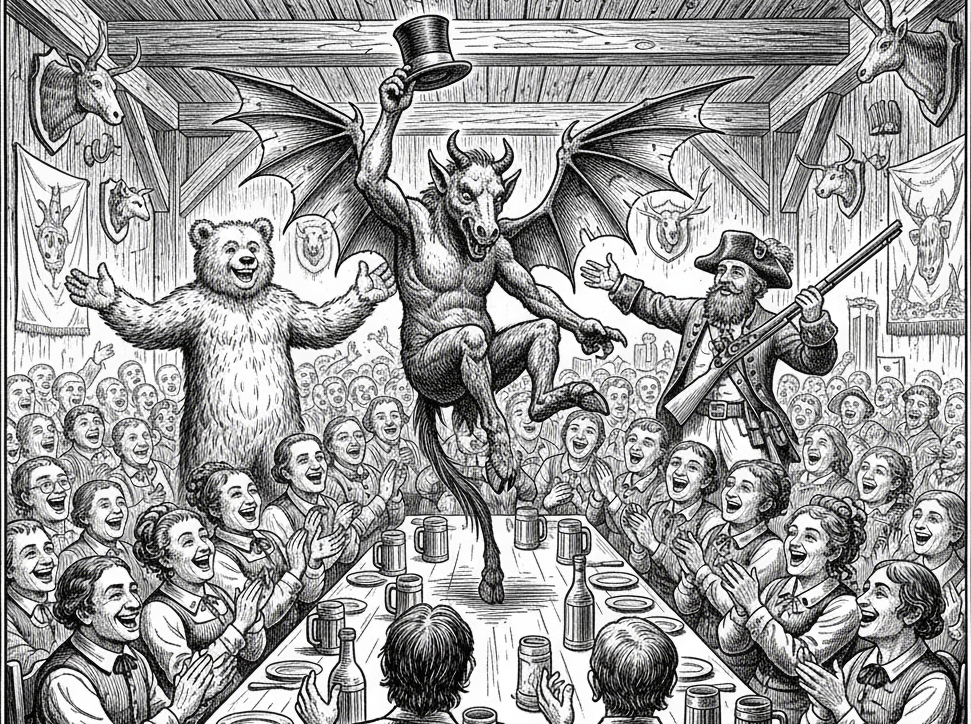Clyde P Riddlesbrood
6 years ago
Spotlight on BenJamin (Jamin) Johnson
An artist paints a picture. A musician composes a song. A sculptor molds a statue. An author writes a novel. A conlanger crafts a language. Say what, you ask? A conlanger? What’s that? Well, a conlanger is an artist, too, but his art is designing new languages. The term comes from the union of two words “construction” and “language,” and is defined as, “a language whose phonology, grammar, and vocabulary have been consciously devised for human or human-like communication.” It’s also referred to as an artificial or invented language.
“I don't particularly like the term, conlanger,” said BenJamin Johnson, a conlanger who was hired by the Riddlesbrood Touring Theater Company to refine a unique language called, “Brooding” for Riddlesbrood’s original stage production, “Harken – A Game of Phones.” Jamin, the name he goes by, feels like people who create language should be able to come up with a nicer-sounding word for it. “Conlanging is, for many, both a hobby and an art form,” he explained. “There are many different types of constructed languages . . . those created as a sort of art, often referred to as "artlangs,” such as the language created for Riddlesbrood, as well as others like Tolkien's languages for Middle-Earth; others created to be auxiliary languages or "auxlangs,” such as Esperanto (a language designed to be easy to learn that would allow people who speak different native languages to communicate); and still others are created for specific purposes such as philosophical, logical, or engineered languages. Most fall into the "artlang" category, and for most who create these sorts of languages, it's not unlike painting, composing, poetry, or any other sort of art that is an effort to create something beautiful or useful or provocative; ideally, a combination of all of these.”
Why would anybody need a new language? Language is the glue that unifies a society. Without language, there is little communication. It adds color and harmony to a civilization just as a painting or song. Specifically, when an artist constructs a mythical world, as is often done within the fantasy and science fiction genres, he or she not only communicates their vision by composing new landscapes and original characters with unique customs, costumes, and challenges, but often devises new languages. When a new language is added to an imaginary realm, the fledgling civilization becomes more fully developed. One could enjoy J.R.R. Tolkien’s “Lord of the Rings” without the Quenya and Sindarin languages used by the elves, and “Game of Thrones” would still be as popular without the Dothraki language spoken by the Dothraki people, but there would be something missing. These languages add an extra dimension of reality and authenticity to a mythical world and express the essence of the people and the society in which they live. After all, a Klingon wouldn’t be as powerful or intimidating without his direct, guttural dialect, would he? The Klingon language not only defines the characters, but it also reflects the world in which they live.
Through conlanging, Riddlesbrood transforms fairy tales into immersive theatrical experiences!
“It would be unnatural for all characters to speak English in a mythical land.” said Ryan Long, owner of Riddlesbrood Touring Theater Company and co-writer and director of “Harken.” “And any new language must be real, constructed using a rule system for the grammar and syntax to convey the fantasy world’s unique style and add authenticity. That’s why I hired experts like Jamin from the Language Creation Society (LCS) to perfect the ‘Brooding’ language. The Language Creation Society is also an honorary sponsor of ‘Harken.’”
Long originally began creating “Brooding” along with his brothers when they were just kids enjoying role-playing fantasy games. In 2012, Long worked with then LCS President David Peterson (who just happens to be the creator of the Dothraki language spoken in Game of Thrones) to further develop the language, and after a contest Scott Hamilton (Conlang & Roleplaying Game Developer) was chosen to formally create the grammar for the tongue. "He did an amazing job!" Ryan said. "His efforts added a stunning amount of 'coolness' to our show and we used it to create our company theme song." Then, in September, 2014, Long contracted with Jamin to advance “Brooding” for the March 2015 production of “Harken.” “Harken” is the medieval fantasy world created by Long where the show takes place.
“Jamin is writing about a dozen lines of dialogue and is translating a song into “Brooding” which will be performed in the show.” Long explained. “There’s a character in ‘Harken’ who serves as a translator who will define the language where necessary. Jamin even made an instructional video to teach the actors how to speak their lines in ‘Brooding.”
Jamin has been a member of the LCS for many years and he’s been involved with constructing languages for about 20 years and has always been fascinated by language. He studied French and Spanish while in high school in the Northern Catskills of upstate New York where he grew up. As an exchange student in Germany, he began playing around with languages for fun, and he’s fascinated with historical linguistics, which is the study of how languages have changed over time. In college he studied Linguistics, French, German, Chinese and Italian. After graduation, Jamin worked for the University of Minnesota Law School’s I.T. helpdesk and began managing it in 2007. In August of 2014, he moved to the Philadelphia area. Jamin’s expertise in using computers and software is instrumental when he’s constructing a language. He’s always trying to figure out ways to take human error out of a process. To this end, he’s developed software that helps him create words and assures they don’t conflict with other new words.


He prefers to be called Jamin
“If I need a word, I plug it into the program and define its attributes. Is it a noun or verb? Should certain vowels or consonants be used?” Jamin explained that specific sounds go with certain types of words. For example, words that are supposed to invoke “danger” might all have a “z” sound to them. Jamin’s computer program randomly generates new words based on the preexisting words and the defined parameters for its category. Over the years, Jamin has created four languages of his own, mostly just for fun. “There’s not a big demand for language developers, so it’s hard to pay your bills doing it,” Jamin explained, “but I’d love to be able to do more of this for a living.”
“Harken’ is an original production (Produced in 2015 & 2017) that brings gaming and theater together for the first time. Instead of building a traditional set, the scenery will be displayed on stage as a living, moving world. The actors will perform within this 3-D virtual reality setting. This will create a more immersive theatrical experience, especially when combined with the game play elements the audience will be enjoying using their smartphone which allows for them to influence the play while earning points for themselves.
To learn even more about this mystical conlang; see Riddlesbrood's Language.




